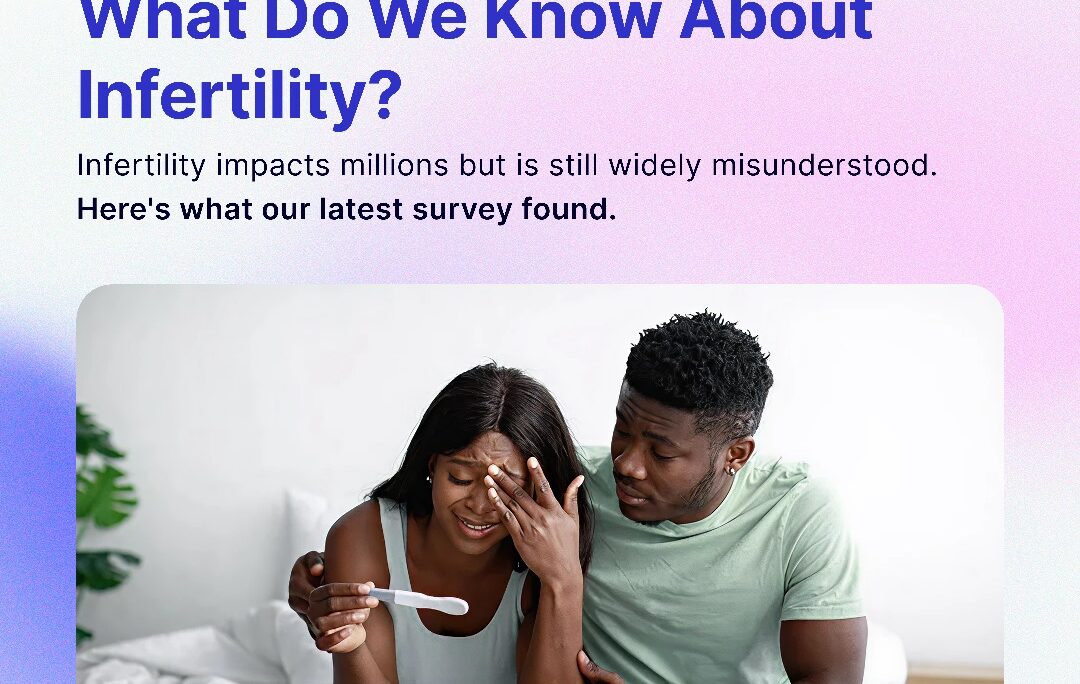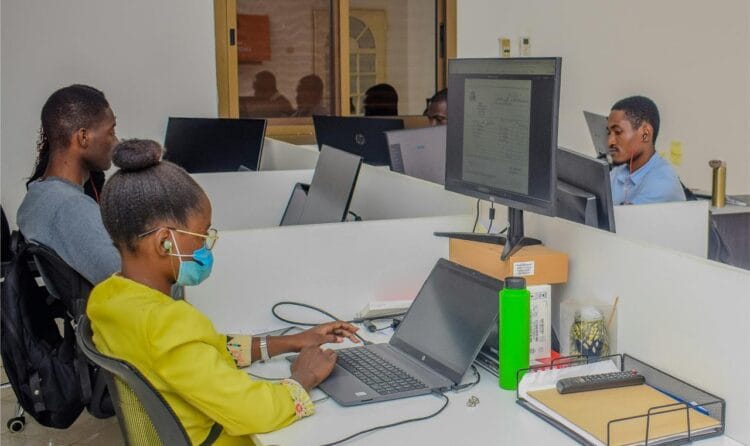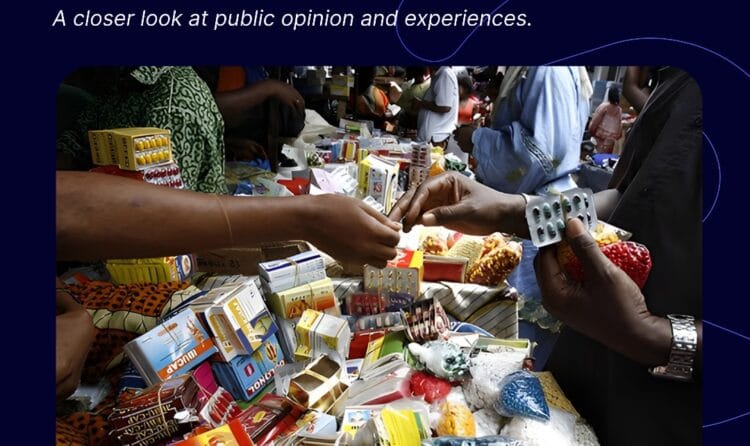INFERTILITY IN NIGERIA: BREAKING THE SILENCE AROUND A SHARED STRUGGLE
Infertility is more common than we often acknowledge, and more emotionally complex than many care to admit. While it affects millions of people around the world, in countries like Nigeria, it remains a silent struggle, often buried under layers of shame, societal expectations, cultural myths, and misinformation.
Too often, infertility is spoken about in hushed tones. It is a condition that does not just touch the body; it shakes marriages, stirs social stigma, and can even fracture personal identities. Yet despite its deeply personal nature, infertility is a public health issue, a mental health issue, and above all, a human issue.
At ResearchGains, we believe in using data as a tool for empathy and change. Numbers do not just count; they speak. And our latest survey on infertility offers a sobering, yet hopeful glimpse into how Nigerians experience, perceive, and respond to this sensitive issue.
This article highlights the key findings, weaving together charts, personal stories, and social insights to make a case for awareness, reform, and support. If you are a health professional, educator, policymaker, or just someone who wants to understand better, this piece is for you.
What Do People Think Infertility Means?
Despite growing conversations about reproductive health, misconceptions still exist.
When we asked respondents what infertility means to them, 82% were able to define it correctly. That is encouraging, and it shows that awareness is improving.
However, 18% either misunderstood the term or were unfamiliar with its meaning. This gap reveals a lingering need for public education. When basic definitions remain unclear, the path to seeking help becomes blurry, or worse, avoided entirely.
Takeaway: Awareness campaigns must not only speak to the emotional realities of infertility but must also provide clear, accurate information on what it is.
Has Infertility Touched Your Life?
One of the most striking findings from our survey is this:
More than 50% of respondents have either personally experienced infertility or know someone close who has.
And yet, many still struggle in silence.
Infertility is so common, and yet so under-discussed. This contradiction is not just unfortunate it is dangerous. Silence can lead to delayed diagnosis, increased stress, and unnecessary suffering.
The taboo around infertility prevents people from asking questions, seeking support, or even realizing they are not alone.
In a society that places high value on childbearing, sometimes as the core of marriage or adulthood, people struggling with infertility are too often met with judgment instead of compassion.
What Causes Infertility? A Shared Challenge
One myth that continues to do damage is the belief that infertility is “a woman’s problem.”
Our data, and global medical consensus, say otherwise.
Infertility can affect anyone. It is a shared challenge between partners, regardless of gender. Male infertility is just as real as female infertility, and both require medical attention and social understanding.
Our chart on this subject served as a reminder: blame and shame only set back progress.
Changing the narrative means promoting partnership, not pointing fingers.
Who Took This Survey?
Understanding the age group of respondents is essential in interpreting our findings.
A whopping 72% of participants were aged 18–27, Gen Z and young millennials.
This is a demographic that is digital-first, globally aware, and actively questioning traditional norms. They are also in the prime years of making major life decisions about education, career, and yes, family planning.
This tells us something crucial:
Fertility education should begin long before marriage or childbirth are on the table.
We must start teaching young adults how to care for their reproductive health, just like we do for mental or cardiovascular health.
Societal Pressure: The Invisible Burden
So what does it feel like to be infertile in a society that expects you to conceive quickly?
In one word: Pressure.
The survey revealed the weight that infertile couples feel due to societal judgment. Family members ask questions. Neighbors whisper. Friends post baby showers and first birthdays on Instagram. Time begins to feel like a countdown.
These pressures are not just emotional; they are sometimes spiritual, marital, and even economic. Women may be blamed or abandoned. Men may suffer in silence, fearing stigma around their masculinity.
Infertility is not just a private concern, it’s a public conversation we must normalize.
Men vs. Women: Talking to Healthcare Providers
Interestingly, both men and women reported being fairly open to discussing infertility with health professionals. However, there’s a small, telling gap:
0% of women reported discomfort
2% of men said they were uncomfortable talking about it
While that may seem small, it suggests an ongoing gender dynamic. Culturally, men are less likely to seek medical help for reproductive issues, and may interpret infertility as a threat to masculinity.
Encouraging open, stigma-free dialogue for men is essential to achieving reproductive health equity.
What Kind of Support Do People Need?
This might be the most important insight of all. Infertility is not just a biological challenge. It’s emotional, financial, and societal.
When asked what kind of support they wished existed, our respondents answered:
Mental Health Counseling — 36%
Financial Aid for Fertility Treatments — 31%
Public Education Campaigns — 21%
Better Workplace Policies — 9%
These numbers speak volumes.
Infertility treatments are expensive. Emotional support is rare. Employers often lack empathy. And communities simply don’t talk about it enough.
Solutions must be holistic — combining healthcare, education, financial access, and workplace reform.
Let us Normalize the Conversation
If we could leave you with one message, it would be this:
Infertility is not shameful. It is not rare. And it is not the end.
It is real, common, and treatable. But everything begins with awareness, and the willingness to talk about it out loud.
Whether it is a church group, a university forum, a health clinic, or a family gathering, conversations about infertility should be just as normal as any other aspect of well-being.
At ResearchGains, our mission is to use data to drive change, not just on paper, but in hearts, homes, and health systems.
Final Thoughts: Be Part of the Change
We encourage you to reflect on the stories behind the statistics. Behind every percentage is a person. A couple. A family trying. Hoping. Waiting.
You can be part of the movement by:
Sharing this article
Supporting a friend going through infertility
Advocating for better reproductive health policies
Pushing your workplace to adopt fertility-friendly policies
Talking openly and kindly
Let us end the silence, one story at a time.
Written by the ResearchGains Insights Team
For more data-driven stories that spotlight real issues in Nigeria and beyond, follow us on Twitter/X or visit www.researchgains.com





